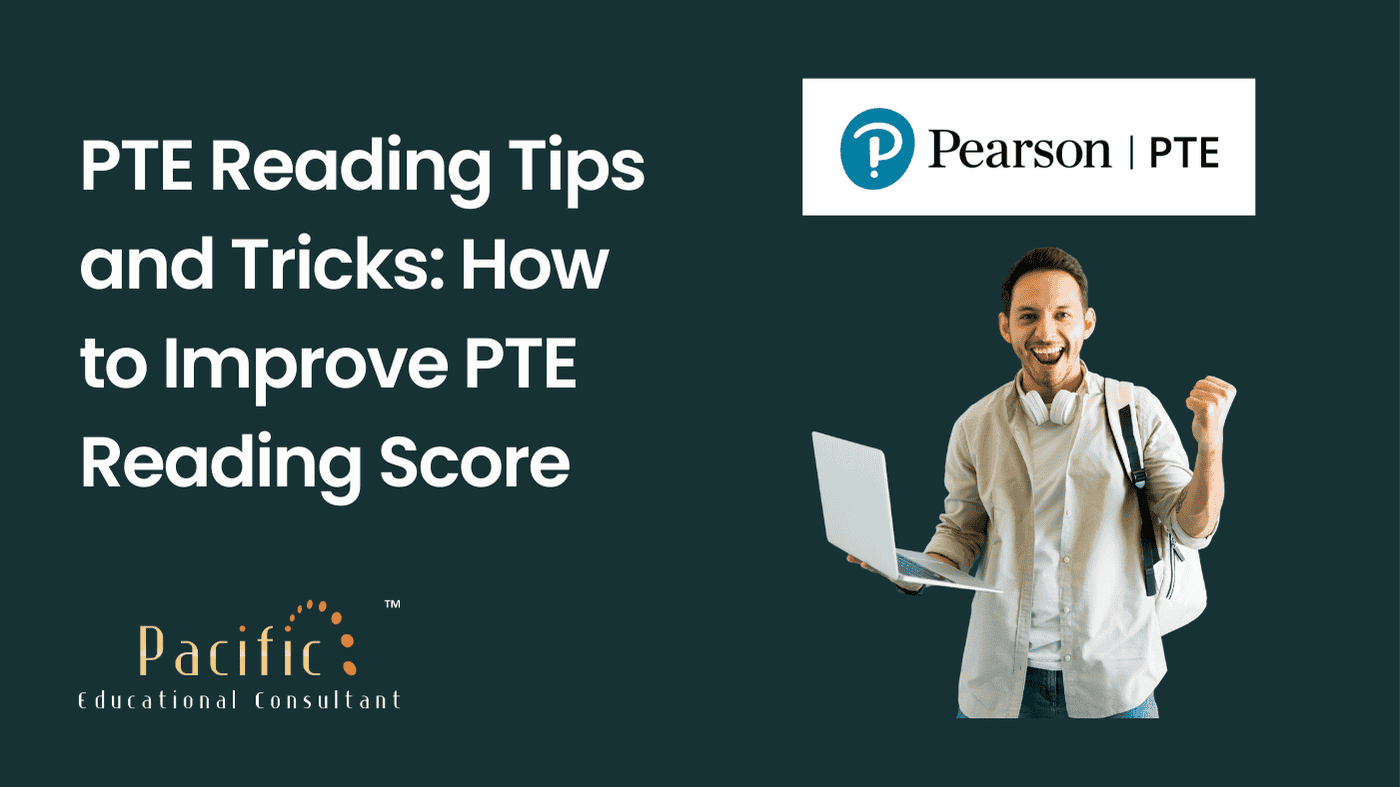


The Pearson Test of English (PTE) is a computer-based English proficiency exam widely accepted for study, work, and migration purposes. The PTE Reading section evaluates your ability to comprehend and analyze written texts in an academic setting. This section consists of different question types that test your vocabulary, grammar, and understanding of textual coherence. The reading tasks are designed to reflect real-world academic English, making them an essential part of your overall PTE score.
The PTE Reading section follows an automated scoring system that assesses responses based on accuracy, coherence, and grammar. Some tasks contribute to both Reading and Writing scores, so strong performance in this section can positively impact your overall results.
Understanding the scoring criteria helps you prioritize tasks that offer more points, ensuring a well-balanced approach to tackling the exam.
Each question type in the PTE Reading section requires a unique strategy for success. Let’s break it down:
✔️ Skim the passage to grasp the main idea before reading the options.
✔️ Eliminate obviously incorrect answers first.
✔️ Avoid overthinking—stick to the most direct and relevant choice.
✔️ Read the question carefully and identify keywords.
✔️ Choose answers only if you're confident; incorrect choices result in negative marking.
✔️ Cross-check all selected answers before submitting.
✔️ Identify the topic sentence (it does not depend on any previous statement).
✔️ Look for transition words such as “however,” “therefore,” or pronouns like “it, this, that.”
✔️ Establish a logical sequence by connecting sentences meaningfully.
✔️ Focus on grammatical clues (verb tense, prepositions, conjunctions).
✔️ Read the sentence carefully to ensure the word choice makes sense contextually.
✔️ Enhance vocabulary to recognize collocations (commonly used word pairs).
✔️ Prioritize words that fit grammatically and contextually.
✔️ Avoid choosing words just because they "sound right"—test them within the sentence.
✔️ Regularly practise reading exercises to improve word recognition skills.
Time management is crucial for completing the PTE Reading section efficiently. Here’s how to distribute your time effectively:
⏳ Allocate Time Wisely:
⏳ Avoid Overanalyzing: Don’t spend too much time on a single question—move on and return if needed.
⏳ Practise Timed Tests: Regular practice with time constraints will help build speed and confidence.
🚫 Not Managing Time Effectively: Spending too long on difficult questions can leave you rushing through others.
🚫 Ignoring Context in Fill in the Blanks: Always read the full sentence to ensure the chosen word fits both grammatically and contextually.
🚫 Guessing Randomly in Multiple Choice Questions: Instead of blind guessing, use elimination techniques to improve accuracy.
🚫 Not Practicing Reorder Paragraphs Enough: This question type requires logical thinking—regular practice improves pattern recognition.
🚫 Skipping Skimming and Scanning Techniques: Learning to quickly identify key information saves time and improves accuracy.
📖 Expand Your Vocabulary: Read academic articles, newspapers, and journals to improve your understanding of advanced vocabulary.
📖 Master Skimming and Scanning Techniques: Skimming helps grasp the main idea quickly, while scanning helps locate specific details.
📖 Practise with Mock Tests: The best way to improve is by attempting full-length PTE reading practice tests regularly.
📖 Develop a Strategic Approach: Tackle high-scoring questions first and manage your time effectively to complete the section without stress.
📖 Use Online Tools: Free online PTE read-aloud practice tools can help with pronunciation and fluency, indirectly benefiting reading comprehension.
Here are some top-rated books to help you prepare for the PTE Reading section:
📚 The Official Guide to PTE Academic – A must-have for understanding exam patterns and practice questions.
📚 PTE Academic Expert B1 & B2 – Provides step-by-step guidance for improving reading skills.
📚 PTE Academic Practice Tests Plus – Offers real test-like experiences with detailed explanations.
📚 The Official PTE Practice App – A great resource for on-the-go learning with real exam questions.
✔️ Speak clearly and steadily.
✔️ Practise with PTE read-aloud practice-free tools to refine pronunciation and fluency.
✔️ Read the entire sentence before selecting an answer.
✔️ Look for grammatical clues and collocations.
✔️ Take full-length tests and review mistakes.
✔️ Analyse question patterns and time yourself.
✔️ The official PTE website and online platforms offer PTE reading practice with answers for free.
✔️ Yes, these tools improve fluency and pronunciation, indirectly benefiting reading comprehension.
✔️ Practise daily with advanced reading materials.
✔️ Focus on Fill in the Blanks and Reorder Paragraphs for maximum scoring potential.
✔️ Familiarize yourself with the exam format and practise all sections consistently.
✔️ Use official PTE materials and take mock tests to simulate the real exam experience.
Improving your PTE Reading score requires consistent practice, strong vocabulary, and effective time management. By following these tips and practicing regularly, you can achieve a high score and excel in the exam.
Start preparing today with PTE practice tests and expert strategies—your high score is within reach! 🚀

Canada Super Visa in Kota | Parents & Grandparents Visa Experts

Malaysia Study Visa Requirements – Fees, Process, Bank Balance

MDS in Germany : Fees, Licensing, Salary & Eligibility for Indian Dentists

PTE Reading Tips and Tricks: How to Improve PTE Reading Score

Best Architecture Colleges in the World: Ranking, Fees & Admission

Top GMAT Accepting Colleges in World for MBA

Fully Funded PhD Scholarships Abroad for Indian Students

MBA in Project Management in UK: Top Universities, Fees & Jobs

Top 10 Universities for MBA HR in Canada | Eligibility & Process

MS in Agriculture in Australia: Top Universities, Scholarships & Jobs